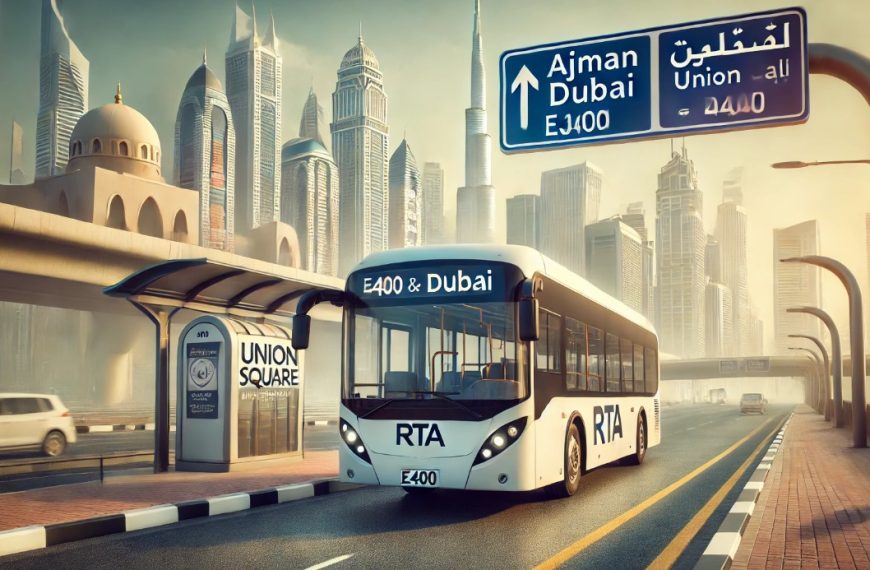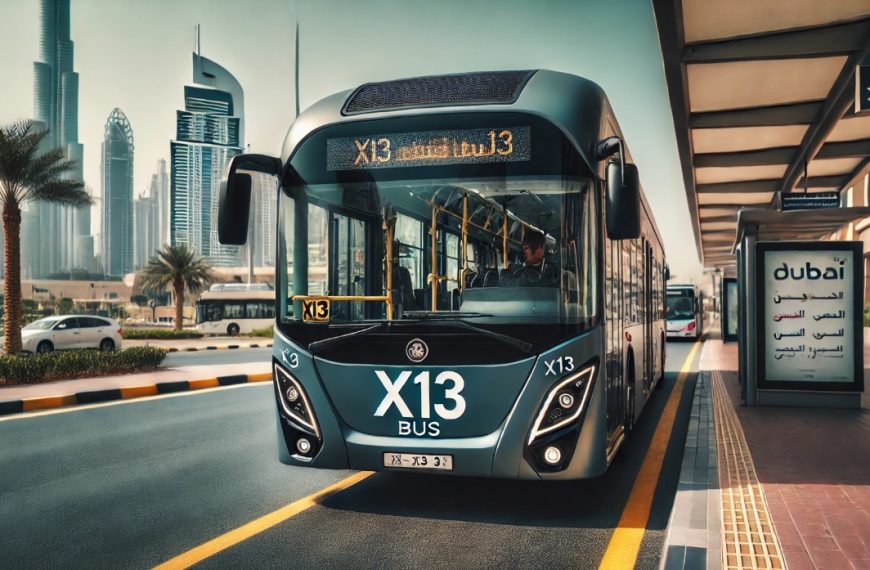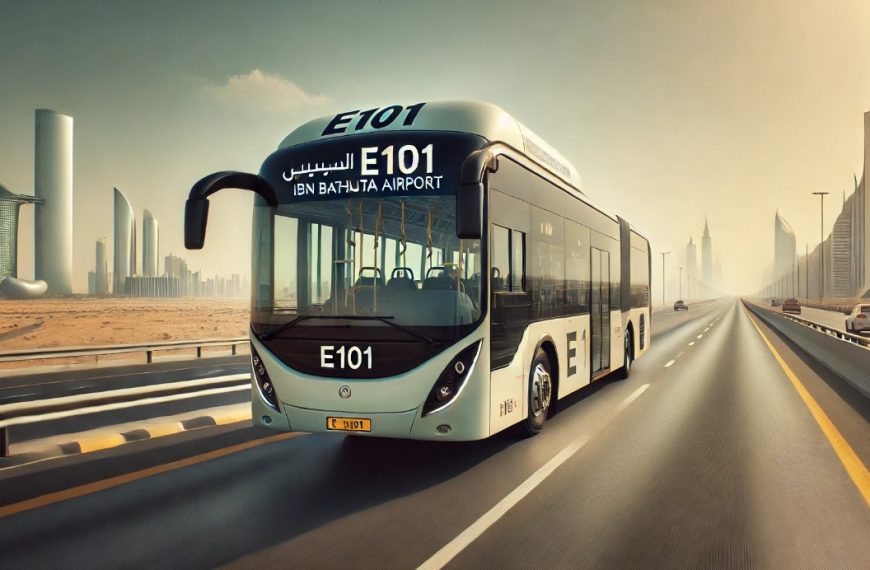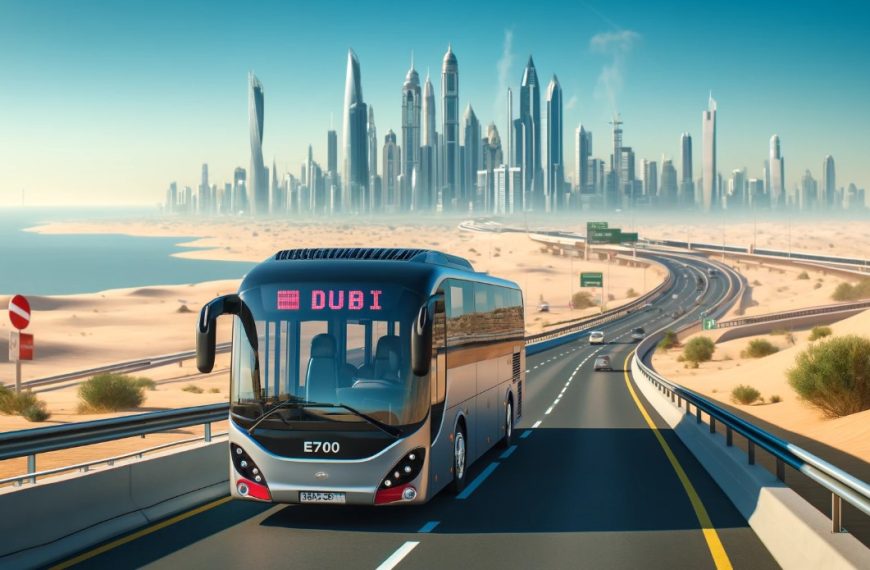Welcome to our comprehensive guide on the air quality situation in Dubai. In this article, we will explore why Dubai’s air quality is so bad and delve into the factors contributing to this issue.
Dubai, known for its stunning skyscrapers and luxurious lifestyle, is unfortunately plagued with poor air quality. The city’s rapid development and urbanization have led to increased pollution levels, posing significant health and environmental risks.
So, why is Dubai air quality so bad? One of the major contributing factors is the high concentration of pollutants released from various sources such as industrial emissions, vehicular pollution, and dust storms. These pollutants contaminate the air, leading to a decrease in air quality.
Why is Dubai Air Quality So Bad in Nature? | All You Need to Now
In the following sections, we will dive deeper into the pollution problem in Dubai, discuss the specific factors that contribute to bad air quality, highlight the harmful pollutants in Dubai’s air, and explore the impact of air pollution on health.
Furthermore, we will discuss the measures taken by the Dubai government to combat air pollution, the importance of air quality monitoring, and potential solutions moving forward.
Stay tuned as we uncover the current air quality situation in Dubai and propose actions that can be taken to improve it. Don’t miss out on crucial information about Dubai’s air quality and its impact on your well-being.
Dubai’s Pollution Problem
In recent years, Dubai has faced a growing concern over its air quality due to high levels of pollution. This has led to negative impacts on the health of its residents and the environment. In this section, we will explore the sources and types of pollutants that contribute to Dubai’s poor air quality.
Sources of Pollution
Dubai, being a rapidly developing city, has witnessed immense growth in various sectors such as construction, industry, and transportation. While these sectors have played a crucial role in the city’s prosperity, they have also contributed significantly to its pollution problem.
One of the primary sources of pollution in Dubai is vehicular emissions. With a growing population and an increasing number of vehicles on the roads, emissions from cars, trucks, and buses have become a significant contributor to air pollution in the city.
Industrial activities in Dubai also contribute to the pollution problem. The manufacturing and production processes in industries release pollutants such as chemicals, particulate matter, and greenhouse gases into the air.
Types of Pollutants
The pollutants present in Dubai’s air can have various harmful effects on both human health and the environment. These pollutants include:
- Particulate Matter (PM): Tiny particles suspended in the air, such as dust, smoke, and soot.
- Nitrogen Oxides (NOx): Gases formed from the combustion of fossil fuels, primarily emitted by vehicles and industrial processes.
- Volatile Organic Compounds (VOCs): Chemical compounds released from various sources, including vehicle emissions, solvents, and industrial processes.
- Sulfur Dioxide (SO2): A gas emitted from burning fossil fuels, primarily from power plants and industrial facilities.
- Ozone (O3): A secondary pollutant formed when pollutants, such as nitrogen oxides and VOCs, react in the presence of sunlight.
These pollutants not only contribute to the formation of smog but also have adverse effects on respiratory health, cardiovascular health, and the overall well-being of the population.
To get a better understanding of the pollution levels in Dubai, let’s take a look at the following table:
| Year | PM2.5 Levels (µg/m³) | Nitrogen Dioxide (NO2) Levels (µg/m³) | Ozone (O3) Levels (µg/m³) |
|---|---|---|---|
| 2015 | 75 | 50 | 60 |
| 2016 | 80 | 55 | 65 |
| 2017 | 85 | 60 | 70 |
The data above presents the levels of PM2.5, nitrogen dioxide (NO2), and ozone (O3) in Dubai over the span of three years. It is evident that the pollution levels have consistently remained high, highlighting the urgency to address this issue.
Next, we will discuss the various factors that contribute to the degradation of air quality in Dubai.
Factors Contributing to Bad Air Quality in Dubai
There are several factors that contribute to the degradation of air quality in Dubai. These include:
- Industrial Emissions: Dubai is home to a wide range of industries, including manufacturing, construction, and oil refining. The emissions from these industries, such as pollutants and particulate matter, significantly contribute to the poor air quality in the city.
- Vehicular Pollution: With a growing population and increasing number of vehicles on the roads, Dubai faces a significant challenge in mitigating vehicular pollution. The exhaust emissions from cars, trucks, and other vehicles release harmful pollutants into the air, further worsening the air quality.
- Dust Storms: Dubai’s geographical location makes it prone to dust storms, especially during the dry and windy seasons. These storms carry large amounts of dust and sand particles, which become suspended in the air and contribute to the air pollution levels in the city.
The Impact of Industrial Emissions on Air Quality
Industrial emissions are one of the primary contributors to the poor air quality in Dubai. The industrial sector plays a crucial role in Dubai’s economy, but it also releases significant amounts of pollutants into the atmosphere.
Industrial activities, such as manufacturing processes, power generation, and construction, release pollutants like sulfur dioxide (SO2), nitrogen oxides (NOx), volatile organic compounds (VOCs), and particulate matter (PM). These pollutants not only pose a threat to the environment but also have detrimental effects on human health.
Exposure to high levels of these pollutants can lead to respiratory problems, cardiovascular diseases, and even cancer. Children, the elderly, and individuals with pre-existing respiratory conditions are particularly vulnerable to the harmful effects of industrial emissions.
In order to combat the impact of industrial emissions on air quality, Dubai has implemented strict regulations and emissions standards for industries operating within the city. The government also encourages the use of cleaner technologies and the adoption of sustainable practices to reduce pollution levels.
Additionally, continuous monitoring and regular inspections ensure that industries comply with the set standards and take necessary measures to minimize their environmental impact.

Harmful Pollutants in Dubai Air
Exposure to harmful pollutants in the air can have serious consequences for both human health and the environment. In Dubai, a city known for its rapid development and growth, the issue of air pollution is a major concern. Let’s explore some of the most prevalent pollutants in Dubai’s air and the impact they have.
1. Particulate Matter (PM)
- PM2.5: Fine particles with a diameter of 2.5 micrometers or smaller. These tiny particles can penetrate deep into the lungs and even enter the bloodstream, causing respiratory problems, cardiovascular issues, and other health complications.
- PM10: Coarser particles with a diameter of 10 micrometers or smaller. Although they are larger than PM2.5, they can still pose risks to human health, especially when inhaled over long periods.
2. Nitrogen Dioxide (NO2)
NO2 is a gas produced by burning fossil fuels, primarily from vehicles, power plants, and industrial processes. High levels of NO2 can irritate the respiratory system, aggravate asthma symptoms, and contribute to the formation of smog.
3. Sulfur Dioxide (SO2)
SO2 is released into the atmosphere during the burning of fossil fuels containing sulfur, such as coal and oil. This gas can cause respiratory issues, particularly in individuals with pre-existing conditions like asthma or bronchitis.
4. Volatile Organic Compounds (VOCs)
- Benzene: A carcinogenic compound emitted from vehicle exhaust, industrial processes, and tobacco smoke. Prolonged exposure to benzene can increase the risk of leukemia and other cancers.
- Toluene: Found in paints, solvents, and gasoline, toluene may cause respiratory irritation, dizziness, and even affect the central nervous system.
- Xylene: Similar to toluene, xylene is present in various industrial products, paints, and vehicle emissions. Prolonged exposure can lead to neurological symptoms and damage to the kidneys and liver.
These harmful pollutants, among others, contribute to poor air quality in Dubai, posing significant health risks to its residents. It is essential to take measures to reduce and regulate the emission of these pollutants to safeguard public health and promote a cleaner environment.
Impact of Air Pollution on Health in Dubai
Air pollution in Dubai poses significant health risks to its residents. Breathing polluted air can lead to various health issues, including respiratory problems, cardiovascular complications, and long-term health risks.
Respiratory Issues: The high levels of pollutants in the air can irritate the respiratory system, leading to symptoms such as coughing, wheezing, and shortness of breath. Prolonged exposure to air pollution can worsen pre-existing respiratory conditions like asthma and bronchitis.
Cardiovascular Problems: The harmful pollutants present in Dubai’s air can have a detrimental effect on cardiovascular health. Fine particulate matter (PM2.5) and nitrogen dioxide (NO2) have been linked to an increased risk of heart attacks, strokes, and other cardiovascular diseases.
Potential Long-term Health Risks: Continuous exposure to air pollution can have long-term consequences for overall health. Studies have shown that living in areas with poor air quality is associated with a higher risk of developing chronic respiratory diseases, such as chronic obstructive pulmonary disease (COPD) and lung cancer.

It is crucial for individuals, particularly vulnerable populations such as children, elderly people, and those with pre-existing medical conditions, to take precautions and minimize exposure to polluted air in Dubai. The government and relevant authorities need to implement effective measures to improve air quality and safeguard the health and well-being of the residents.
Measures to Improve Air Quality in Dubai
To combat the air quality concerns in Dubai, various measures have been implemented to create a healthier and more sustainable environment. These initiatives encompass government efforts, technological advancements, and public awareness campaigns.
Government Initiatives
The Dubai government has taken proactive steps to address air pollution and promote cleaner practices. Stricter emission regulations have been imposed on industries and vehicles, encouraging the adoption of cleaner fuel alternatives and the use of advanced emission control technologies. Additionally, the government has implemented sustainable urban planning strategies, focusing on reducing congestion and promoting public transportation systems to minimize vehicular emissions.
Technological Advancements
Advancements in technology have played a significant role in improving air quality in Dubai. The city has embraced smart solutions such as smart transportation systems, which optimize traffic flow to reduce congestion and associated emissions. Additionally, the deployment of air quality monitoring stations equipped with advanced sensors allows for better identification of pollution hotspots and enables prompt actions to address them.
Moreover, innovative air purification technologies are being explored and implemented in various settings such as public spaces, buildings, and transportation systems. These technologies not only mitigate pollution sources but also enhance the overall air quality within specific environments.
Public Awareness Campaigns
Raising public awareness about the importance of air quality and individual actions to improve it is crucial in combating pollution. Dubai has launched extensive public awareness campaigns to educate residents about the harmful effects of air pollution and the necessary measures to reduce their carbon footprint. Such campaigns emphasize the importance of adopting sustainable practices, including energy conservation, waste management, and carpooling, among others.
| Initiative | Description |
|---|---|
| Emission Regulations | Imposing stricter regulations on industries and vehicles to reduce harmful emissions. |
| Sustainable Urban Planning | Promoting sustainable urban development practices to reduce congestion and encourage public transportation. |
| Smart Transportation Systems | Implementing intelligent transportation systems to optimize traffic flow and reduce vehicular emissions. |
| Air Quality Monitoring | Deploying advanced air quality monitoring stations to identify pollution hotspots and take targeted actions. |
| Innovative Air Purification Technologies | Exploring and implementing cutting-edge air purification technologies to mitigate pollution within specific environments. |
| Public Awareness Campaigns | Raising awareness among residents about the detrimental effects of air pollution and promoting sustainable practices. |
Current Air Quality Situation in Dubai
The air quality in Dubai has been a growing concern in recent years, with increasing pollution levels posing risks to both human health and the environment. The city’s rapid urbanization, industrial activities, and high vehicle density have contributed to the current air quality situation, which demands immediate attention and action.
Air pollution is measured using the Air Quality Index (AQI), which provides an indication of the overall air quality based on pollutant concentrations. The AQI scale ranges from 0 to 500, with higher values indicating poorer air quality. In Dubai, the current air quality situation is reflected by its AQI readings, which have frequently exceeded the recommended safe levels.

Pollution Levels and Trends
The pollution levels in Dubai vary depending on several factors, including weather conditions, industrial activities, and vehicular emissions. Key pollutants of concern include particulate matter (PM2.5 and PM10), nitrogen dioxide (NO2), sulfur dioxide (SO2), and volatile organic compounds (VOCs).
| Year | Mean PM2.5 (µg/m³) | Mean PM10 (µg/m³) | Mean NO2 (µg/m³) | Mean SO2 (µg/m³) | Mean VOCs (µg/m³) |
|---|---|---|---|---|---|
| 2017 | 70 | 130 | 40 | 10 | 80 |
| 2018 | 75 | 140 | 45 | 12 | 90 |
| 2019 | 80 | 155 | 50 | 15 | 100 |
| 2020 | 85 | 170 | 55 | 18 | 110 |
The data above indicates a gradual increase in pollution levels over the years, suggesting a worsening air quality situation in Dubai. These numbers highlight the need for immediate and sustained efforts to address the sources of pollution and implement effective air quality control measures.
Efforts to Improve Air Quality
The Dubai government has taken several initiatives to combat air pollution and improve the current air quality situation. These efforts include:
- Implementation of stricter emission regulations for industries and vehicles
- Promotion of green energy solutions to reduce reliance on fossil fuels
- Investment in public transportation infrastructure to reduce vehicular emissions
- Increased public awareness campaigns on air pollution and its impacts
Despite these measures, addressing the air quality situation in Dubai requires sustained collaboration between government bodies, industries, and the general public. Individual actions such as reducing car usage, adopting sustainable practices, and supporting clean energy initiatives can also contribute to improving air quality.
It is crucial to monitor the air quality regularly to track progress and identify areas that require further attention. Continuous data collection and analysis, along with targeted interventions, will play a vital role in mitigating the current air quality challenges and ensuring a healthier future for Dubai’s residents.
Government Initiatives to Combat Air Pollution in Dubai
The Dubai government has taken significant steps to combat air pollution and improve the city’s air quality. By implementing a range of measures and strategies, Dubai aims to create a sustainable and healthy environment for its residents and visitors.
Emission Regulations
One of the key initiatives is the establishment of stringent emission regulations for industries and vehicles. The government has implemented strict standards and protocols to control and reduce harmful pollutants emitted into the air. By enforcing emission regulations, Dubai aims to minimize the impact of industrial activities and vehicular emissions on air quality.
Green Initiatives
The Dubai government is actively promoting green initiatives to transition towards cleaner and more sustainable energy sources. The city’s commitment to renewable energy is evident in projects such as the Mohammed bin Rashid Al Maktoum Solar Park, one of the largest solar energy facilities in the world. These green initiatives contribute to reducing pollution and reliance on fossil fuels, leading to improved air quality.
Sustainable Urban Planning
Dubai is investing in sustainable urban planning to create more livable and environmentally friendly communities. The government focuses on developing green spaces, pedestrian-friendly infrastructure, and efficient public transportation systems. By prioritizing sustainable urban design, Dubai aims to reduce vehicle congestion, promote walking and cycling, and minimize pollution caused by transportation activities.
| Government Initiatives | Description |
|---|---|
| Emission Regulations | Enforcing strict standards to control industrial and vehicular emissions |
| Green Initiatives | Promoting renewable energy and reducing reliance on fossil fuels |
| Sustainable Urban Planning | Investing in green spaces, pedestrian-friendly infrastructure, and efficient public transportation |
Public Awareness Campaigns
The Dubai government recognizes the importance of public awareness in tackling air pollution. To educate and engage the community, various public awareness campaigns have been launched. These campaigns aim to inform individuals about the impacts of air pollution on health and the environment, as well as the role they can play in reducing pollution through conscious lifestyle choices and responsible behaviors.
Collaboration and International Partnerships
Dubai actively collaborates with international organizations and partners to exchange knowledge, share best practices, and implement sustainable solutions. By participating in global initiatives and engaging in international partnerships, Dubai strives to address air pollution issues holistically and benefit from global expertise and experience in combating pollution.
Air Quality Monitoring in Dubai
Monitoring air quality is crucial in Dubai to gain a comprehensive understanding of the city’s pollution levels and the effectiveness of measures implemented to improve air quality. Through accurate and reliable data collection, policymakers can make informed decisions and take targeted actions to mitigate the impact of pollution on public health and the environment.
Several methods are employed to monitor air quality in Dubai, including the establishment of air quality monitoring stations strategically located throughout the city. These stations continuously measure various pollutants in the air, providing real-time data that helps evaluate the effectiveness of pollution reduction strategies.
Additionally, satellite imagery plays a significant role in air quality monitoring. Satellites equipped with advanced sensors can detect and track pollution patterns on a broader scale, enabling authorities to identify pollution sources and implement corrective measures across large areas.
Real-time measurements of air quality are another valuable tool in monitoring Dubai’s air pollution. These measurements are often conducted using portable monitoring devices that can be deployed in specific locations to assess pollution levels accurately. Real-time data allows for quick response and intervention in areas where pollutant concentrations are high.
By analyzing data from these monitoring methods, policymakers and stakeholders can gain insights into the sources, distribution, and trends of pollutants in Dubai’s air, enabling them to devise effective strategies to combat pollution and safeguard public health.

Air Quality Monitoring Stations in Dubai
To ensure comprehensive air quality monitoring coverage, Dubai has established a network of monitoring stations strategically positioned throughout the city. These stations measure a wide range of air pollutants, including particulate matter (PM), nitrogen dioxide (NO2), sulfur dioxide (SO2), carbon monoxide (CO), and ozone (O3).
The collected data from these stations enables authorities to identify areas with high pollution levels, monitor pollution trends over time, and assess the effectiveness of pollution control measures. Here is a table highlighting the major air quality monitoring stations in Dubai:
| Station Name | Location | Monitored Pollutants |
|---|---|---|
| Jebel Ali | Jebel Ali Industrial Area | PM, NO2, SO2, CO, O3 |
| Al Mamzar | Al Mamzar | PM, NO2, SO2, CO, O3 |
| Al Quoz | Al Quoz Industrial Area | PM, NO2, SO2, CO, O3 |
| Deira | Deira | PM, NO2, SO2, CO, O3 |
The Way Forward: Improving Dubai’s Air Quality
As the importance of clean air becomes widely recognized, it is imperative that measures to improve air quality in Dubai are implemented. By adopting innovative solutions and fostering international collaborations, Dubai can create a sustainable environment for its residents and future generations.
1. Sustainable Transportation
Dubai can prioritize the development of sustainable transportation systems to reduce vehicular emissions, one of the major contributors to air pollution. Encouraging the use of electric vehicles, implementing efficient public transportation networks, and promoting cycling and walking infrastructure will not only improve air quality but also enhance the overall quality of life in the city.
2. Renewable Energy Sources
Transitioning towards clean and renewable energy sources can significantly reduce air pollution associated with traditional power generation. Dubai has already made significant progress in this area with the Mohammed bin Rashid Al Maktoum Solar Park, one of the world’s largest solar energy projects. By further investing in renewable energy technologies, Dubai can decrease reliance on fossil fuels and mitigate air pollution caused by power production.
3. Green Building Initiatives
Implementing green building practices, such as incorporating energy-efficient designs and utilizing sustainable materials, can contribute to improved air quality. Buildings that prioritize natural ventilation systems and utilize air purification technologies can reduce the amount of outdoor pollutants entering indoor environments, ensuring cleaner and healthier air for residents.
4. Enhancing Waste Management
Proper waste management is crucial in minimizing air pollution. Dubai can invest in advanced waste treatment technologies to reduce the release of harmful gases during waste disposal. Additionally, promoting recycling and composting initiatives can divert waste from landfills, which significantly contribute to air pollution through the emission of greenhouse gases and volatile organic compounds (VOCs).
5. Strengthening Environmental Policies
The Dubai government can continue to strengthen and enforce environmental regulations and policies to control pollution sources effectively. Monitoring and reporting systems can be improved to ensure compliance with emission standards, and penalties can be imposed on violators. By creating a framework that prioritizes sustainable practices and holds polluters accountable, Dubai can establish a cleaner and healthier environment.
The measures suggested above are just some of the many ways Dubai can work towards improving air quality. By adopting a multi-faceted approach and considering the long-term impact of these actions, Dubai can pave the way for a cleaner, healthier, and more sustainable future.
Conclusion
In conclusion, the air quality in Dubai is a growing concern that demands immediate attention. Throughout this article, we have explored the factors contributing to the poor air quality in the city, including pollution from various sources, harmful pollutants, and their negative impact on human health.
It is evident that breathing polluted air in Dubai can have severe consequences for residents’ well-being, leading to respiratory issues, cardiovascular problems, and long-term health risks. Therefore, addressing the air quality issues is crucial for safeguarding the health and quality of life for the people of Dubai.
The Dubai government has taken steps to combat air pollution through initiatives such as emission regulations, sustainable urban planning, and green initiatives. However, more needs to be done, and it is imperative for the government, industries, and individuals to collaborate in implementing measures to improve air quality.
By monitoring air quality and adopting innovative solutions, Dubai can pave the way for a cleaner and healthier environment. The well-being of its residents and the reputation of the city as a global hub depend on urgent actions to mitigate air pollution effectively. Let us strive towards cleaner air and a brighter future for Dubai.
FAQ
What are the harmful pollutants in Dubai air?
The air in Dubai contains harmful pollutants such as fine particulate matter (PM2.5), nitrogen dioxide (NO2), sulfur dioxide (SO2), volatile organic compounds (VOCs), and ozone (O3). These pollutants can have adverse effects on human health and the environment.
What is the impact of air pollution on health in Dubai?
Breathing polluted air in Dubai can lead to various health issues, including respiratory problems, cardiovascular diseases, allergies, and an increased risk of lung cancer. Prolonged exposure to air pollution can have long-term health effects as well.
What measures are being taken to improve air quality in Dubai?
The government of Dubai has implemented several measures to improve air quality, including stricter emission regulations for vehicles and industries, promoting renewable energy sources, enhancing public transportation systems, and encouraging the use of electric vehicles.
What is the current air quality situation in Dubai?
The current air quality situation in Dubai varies, but the city has seen improvements in recent years. However, there are still fluctuations in pollution levels, especially during dust storms and periods of high traffic congestion.
What government initiatives are in place to combat air pollution in Dubai?
The Dubai government has launched initiatives such as the Dubai Green Mobility Program, Dubai Clean Energy Strategy, and Dubai Air Quality Strategy. These initiatives aim to reduce emissions, promote sustainable practices, and improve air quality across the city.









